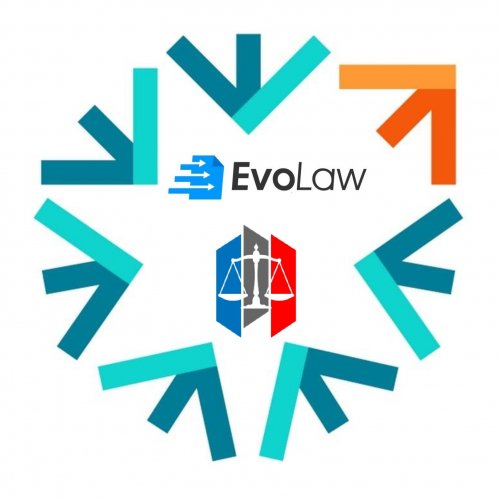Best Business Lawyers in San Salvador
Share your needs with us, get contacted by law firms.
Free. Takes 2 min.
List of the best lawyers in San Salvador, El Salvador
About Business Law in San Salvador, El Salvador
Business law in San Salvador, El Salvador, encompasses a range of legal disciplines aimed at facilitating commerce and protecting commercial interests. The capital city serves as the country's economic hub, attracting both local entrepreneurs and international businesses seeking opportunities in the bustling Central American market. Being the regulatory center, business law here governs corporate structures, taxation, labor relations, intellectual property, and trade practices. Given San Salvador's strategic location and role in the economy, its legal framework strives to support business growth while maintaining compliance with regional and international standards.
Why You May Need a Lawyer
There are numerous situations where individuals or businesses might require legal assistance in San Salvador. Common scenarios include forming a new company, drafting and negotiating contracts, ensuring compliance with local labor laws, managing mergers or acquisitions, and resolving disputes. Businesses often face challenges related to intellectual property rights, regulatory compliance, and tax obligations, requiring expert legal intervention. A lawyer specializing in business law can provide crucial guidance to navigate these complex legal landscapes, protect assets, and prevent potential litigation.
Local Laws Overview
San Salvador's business legal environment is regulated by several key legislations that address corporate governance, commercial transactions, employment laws, and more. The Commercial Code lays the foundational rules for business operations, while the Labor Code governs employer-employee relationships. Tax laws are critically important, with regulations overseen by the Ministry of Finance. Additionally, specific laws regulate intellectual property rights to encourage innovation and protect creators. Understanding these local laws ensures businesses operate successfully within legal boundaries.
Frequently Asked Questions
What are the main types of business entities in San Salvador?
In San Salvador, the primary business entities include sole proprietorships, partnerships, limited liability companies (LLCs), and corporations. Each type has distinct legal and tax implications, catering to different business needs.
How do I register a business in San Salvador?
Registering a business involves several steps, including selecting a business name, determining the business structure, and completing registration with the National Registry Center (CNR) and the Ministry of Finance for tax purposes. Engaging a lawyer can streamline the process.
What are the common business taxes I should be aware of?
Key business taxes include corporate income tax, value-added tax (VAT), and municipal taxes. Compliance with these tax obligations is crucial to avoid penalties and legal issues.
How do labor laws affect my business?
Labor laws in San Salvador regulate aspects such as employee contracts, wages, working hours, and severance. Compliance is necessary to safeguard both employees' rights and the employer's interests.
What is the process for resolving business disputes?
Business disputes can be resolved through negotiation, mediation, arbitration, or litigation. The chosen method depends on the nature and complexity of the dispute. A business lawyer can provide assistance in determining the best course of action.
Is it necessary to protect my intellectual property?
Yes, protecting intellectual property is vital for safeguarding business innovations and branding. Registering trademarks, patents, and copyrights helps prevent unauthorized use and potential legal disputes.
What are the import/export regulations I should know about?
The Ministry of Economy regulates trade, and businesses must comply with export/import documentation, tariffs, and trade agreements. Lawyers can help navigate these regulatory requirements efficiently.
Can foreign entities operate businesses in San Salvador?
Yes, foreign entities can operate businesses in San Salvador, subject to local regulations. They must adhere to the same registration and compliance standards as local businesses and might require additional permits.
What are the legal requirements for business contracts?
Legal contracts must clearly define terms, rights, and obligations of the parties involved. It is advisable to engage a lawyer to draft and review contracts to ensure they are enforceable and compliant with local laws.
How can mergers and acquisitions be managed legally?
Mergers and acquisitions involve complex legal processes, including due diligence, negotiation, and contract drafting. Legal expertise is necessary to ensure compliance with corporate laws and protect stakeholders' interests.
Additional Resources
Several resources can be beneficial for those seeking business legal advice in San Salvador. These include the National Registry Center (CNR), the Ministry of Finance, and the El Salvador Chamber of Commerce and Industry. These entities provide guidance on registration, taxation, and regulatory compliance.
Next Steps
If you need legal assistance in business matters in San Salvador, it's important to consult with a lawyer who specializes in the area relevant to your needs. Start by identifying your specific legal requirements and seeking recommendations or reviews for reputable law firms. Scheduling a consultation can provide you with the initial guidance and clarity needed to navigate the complex business legal environment in the region. Additionally, consider joining local business associations for networking opportunities and further support.
Lawzana helps you find the best lawyers and law firms in San Salvador through a curated and pre-screened list of qualified legal professionals. Our platform offers rankings and detailed profiles of attorneys and law firms, allowing you to compare based on practice areas, including Business, experience, and client feedback.
Each profile includes a description of the firm's areas of practice, client reviews, team members and partners, year of establishment, spoken languages, office locations, contact information, social media presence, and any published articles or resources. Most firms on our platform speak English and are experienced in both local and international legal matters.
Get a quote from top-rated law firms in San Salvador, El Salvador — quickly, securely, and without unnecessary hassle.
Disclaimer:
The information provided on this page is for general informational purposes only and does not constitute legal advice. While we strive to ensure the accuracy and relevance of the content, legal information may change over time, and interpretations of the law can vary. You should always consult with a qualified legal professional for advice specific to your situation.
We disclaim all liability for actions taken or not taken based on the content of this page. If you believe any information is incorrect or outdated, please contact us, and we will review and update it where appropriate.
Browse business law firms by service in San Salvador, El Salvador
San Salvador, El Salvador Attorneys in related practice areas.













